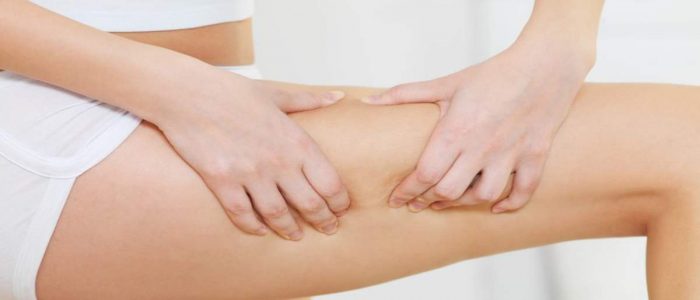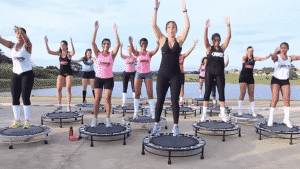Fluid retention brings you down the street of bitterness and you want to know how to end it once and for all? How true is what you've been told about fluid retention and how it affects you? What are the most effective remedies to end this situation and get to see the results you have been waiting for so long?
You have tried everything. You count every calorie you consume, you keep a daily log of all your activity. You have tried all the nutritional supplements that exist ... but still you can't lose any weight.
What is happening?
You have been assured that a calorie deficit works best and you are trying hard not to eat too much. You have learned to prevent metabolic damage and you starve many hours a day ... To see no results?
You exercise religiously, but month after month, your figure remains the same as at the beginning every time you look in the mirror, what could be happening?
Once we rule out the obvious reasons why you are not losing weight, the only conclusion is fluid retention. And when we find out that fluid retention is the problem, then you can find a solution for it.
If you do what most people do: more exercise and eat less, you may be extending your situation.
It is normal to feel frustration or anger and that it has crossed your head to give up at once. Deep down, you don't want that to happen.
6 effective ways to reduce fluid retention
In addition to the following points, there is also something else you can do to end the water retention that bothers you so naturally and without too much effort.
Here are a few more ways to end your problem. Just remember that they are natural methods, so if you feel that your problem is something greater, it is best to consult a doctor.
move on
You can start by walking or moving around a bit to try to reduce localized fluid buildup, as in lower exterminations. You can also try elevating your legs.
If you don't like exercising in public places, you can choose to buy material for your home:
- Treadmills
- Elliptical bikes
Drink more water
Many people believe that the best way to eliminate fluid retention is, paradoxically, by drinking more water.
Horse tail
Horsetail is helpful thanks to its powerful diuretic effects.
Parsley
Parsley has always been considered a very effective diuretic.
Garlic
In addition to being practical against common colds, it also has diuretic properties that can help you with your fluid retention.
Cranberry juice
Cranberry juice also has diuretic properties.
Fluid retention occurs when excess fluids are generated inside the leather. This is also known as fluid retention or edema, and it occurs when it enters the circulatory system, or within the tissues. Its most visible symptoms are swelling of the hands, feet, legs and ankles.
There are several reasons for fluid retention, and it is almost never serious. In fact, some women suffer from fluid retention when they get pregnant or before having menstruation.
But it also happens to people who are sedentary or who spend a lot of time physically inactive, such as those who are bedridden or have to travel for many hours on an airplane.
However, you should know that water retention can also mean a very serious medical symptom, revealing a predisposition to kidney disease or heart failure. If you find that your fluid retention is becoming serious, it is best that you seek medical help as soon as possible.
Luckily, most of the time the swelling is mild and not an underlying health problem. In these cases, there are some tricks that can help you.
Take less salt
Salt is made up of sodium and chloride. Sodium mixes with the body's water to keep the internal and external fluids of cells in balance.
Fluid retention occurs when we eat a lot of foods that are high in salt.
Therefore, the solution seems logical: by reducing sodium intake, you can reduce fluid retention. However, there are some nuances.
While for many people they retain fluids due to sodium intake, for other people this is not a factor at all. So, ultimately, fluid retention caused by sodium depends exclusively on each individual.
Increase magnesium intake
One of the most important minerals is magnesium.
The reality is that it is related to more than 300 enzymatic reactions that keep the body working properly. So sometimes we just need to increase magnesium intake to reduce fluid retention.
Take more vitamin B6
Vitamin B6 is a group of closely related vitamins, which are involved in the generation of red blood cells, but are also involved in many other functions of the body.
Vitamin B6 can be helpful both for ending water retention and for women with PMS.
Among the foods richest in vitamin B6 we have meat, potatoes, nuts and bananas.
Eat foods rich in potassium
Potassium has several functions in our body.
For example, it influences by sending electrical signals that keep the body working properly. In addition, it is very beneficial to improve heart health.
The reasons are very simple, since on the one hand potassium reduces sodium levels and, at the same time, increases urine production.
Some of the foods with the highest potassium content are avocados, bananas or tomatoes.
Taste the dandelion
Dandelion is an herb that has been used for centuries as a natural diuretic in folk medicine.
Natural diuretics can be beneficial in reducing fluid retention by making you go to the bathroom more times.
Avoid refined carbohydrates
The main cause of spikes in blood sugar and insulin levels is usually refined carbohydrates.
When insulin levels rise, then fluid retention is more likely to occur, as sodium reabsorption in the kidneys also increases. This translates into a greater volume of fluid inside the body.
To avoid refined carbohydrates, just avoid processed sugars and grains, like white flour.



